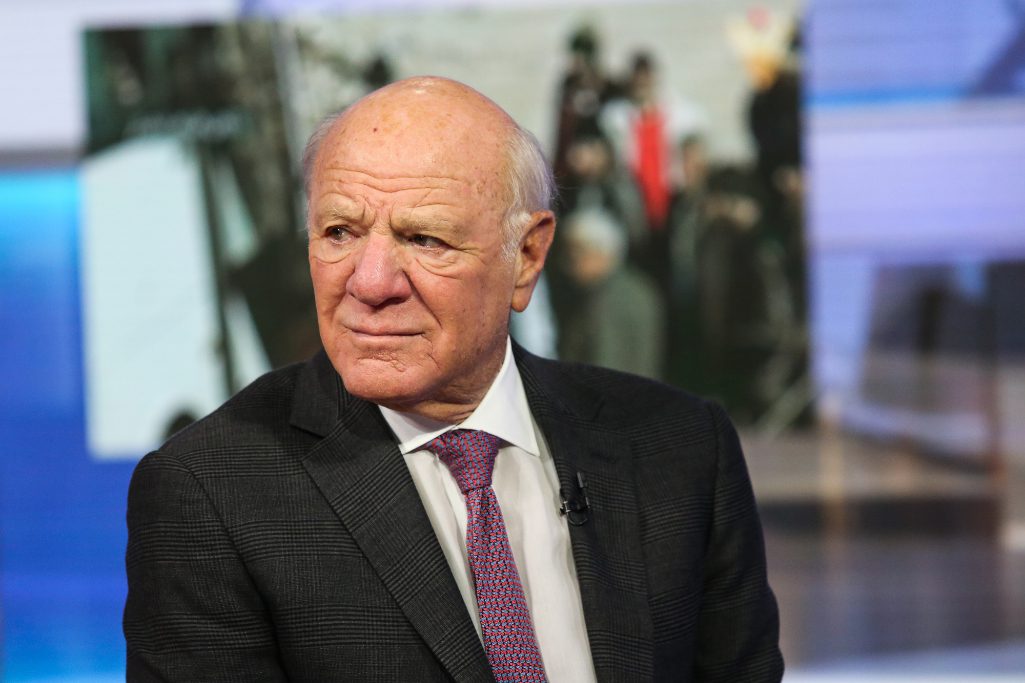Skift Take
The odds are against this shareholder lawsuit against Barry Diller and the Expedia Group board doing anything to upend Diller's ongoing control of the company, so look for a financial settlement. But the issues raised highlight why good governance groups abhor companies that don't have truly independent directors.
Will Barry Diller, the longtime senior executive of Expedia Group, be able to continue to control the company following a proposed “merger” that unwinds Diller’s longtime partnership with John Malone and his Liberty Media?
A shareholder lawsuit naming Expedia, Diller, and the rest of the board of directors, brought by Teamsters Union Local No. 142 Pension Fund, effectively seeks to block Diller’s potential voting control of Expedia Group after a merger with Liberty Expedia, and seeks monetary damages. The lawsuit, which is seeking class action status, alleges that Diller and Expedia Group board members’ breached their fiduciary responsibilities resulting from the terms of the deal. [See the lawsuit embedded below.]
Let’s Explain
Before we get into the lawsuit, let’s explain the context. Expedia Group is currently a controlled company with Diller being able to dictate virtually all of the company’s major decisions because of the voting power through an “irrevocable proxy” that Liberty Chairman John Malone and his wife granted to Diller over their shares in Liberty Expedia Holdings.
Why is this merger taking place?
Expedia Group CEO Mark Okerstrom said in a statement a few months ago that the deal would simplify the company’s governance structure and reduce its share count.
The lawsuit said Liberty Expedia Group wants to execute the merger because changes to the company’s governance structure would mandate increased regulatory disclosures and other restrictions flowing out of the Investment Company Act of 1940, “and for other business reasons.”
Deal Misconception
There has been somewhat of a misconception about whether Expedia Group would transition from a controlled company to an independent corporation when the pending transaction between Expedia Group and Liberty Expedia Holdings goes through.
Yes, post-transaction, Diller would control only 29 percent of Expedia Group’s voting power because he and his family foundation would be entitled to convert 5.6 million common shares into Class B shares that come with 10 votes per share.
However, the merger agreements also give Diller the right for nine months after the merger to purchase or exchange common stock for an additional 7.2 million Class B shares, giving him control of Expedia Group with 48 percent or 49 percent voting power. Coupled with Diller’s alleged cozy and conflicted relationships with board members, according to the lawsuit, this would give him veto power over all major company decisions.
All of the board members, including Alexander von Furstenenberg (the son of Diller’s wife Diane von Furstenberg), Chelsea Clinton (Diller and the Clintons are reportedly close), and Expedia Group CEO Okerstrom, as well as former CEO and director Dara Khosrowshahi, are named as defendants in the shareholder lawsuit.
Without the provisions that could potentially give Diller total sway over the company, the merger could have given common shareholders control of Expedia Group, including the ability to name board members, the lawsuit, which was filed in Delaware Chancery court, stated.
“Instead, Expedia Group’s board of directors (the “Expedia Group Board”) has approved a series of transactions and agreements that will entrench Diller, who is seventy-seven years old, with voting control of the Company essentially for life,” the lawsuit alleged.
Expedia Group, which cited the shareholder lawsuit in recent financial filings, declined to comment further on the lawsuit.
In its financial filings, Expedia Group stated: “While plaintiff has not sought to block the closing of the Combination, the Action seeks to undo certain aspects of those agreements, including by seeking an order converting high vote Class B common stock of Expedia Group transferred to or acquired by Mr. Diller under the terms of those agreements into low vote common stock of Expedia Group.”
What the Lawsuit Seeks
The lawsuit, which seeks monetary damages for holders of Expedia Group’s common shares, would have the court block Diller’s ability to convert common stock into Class B shares, or remove the 10 votes per share that come with each of these Class B shares.
The lawsuit alleges that Expedia Group’s existing governance and stockholder agreements bar Diller from voting Malone’s shares in favor of, and intervening in — or negotiating — the merger because there is no credible takeover attempt that would have allowed such involvement. The lawsuit seeks a declaratory judgment that Diller had no such grounds to intervene.
Diller had “had no existing contractual or other rights that would have been triggered by the Merger,” the lawsuit alleged. “Therefore, he had no basis to receive, and the Expedia Group Board had no basis to create, contractual rights in connection with the Merger giving him control of Expedia Group.”
It is interesting to note that although the lawsuit alleges that Diller and the rest of the Expedia Group board of directors violated their fiduciary responsibilities regarding the proposed merger, nowhere does it argue that Diller’s existing control of the company harmed Expedia’s operations or shareholder value in the past.
The Daily Newsletter
Our daily coverage of the global travel industry. Written by editors and analysts from across Skift’s brands.
Have a confidential tip for Skift? Get in touch
Tags: barry diller, expedia, liberty media, litigation, shareholders
Photo credit: A shareholder lawsuit is challenging deal provisions that would enable Expedia Group senior executive Barry Diller to maintain voting control of the company after a merger. Pictured, Diller spoke during a Bloomberg Television interview in New York January 27, 2016. Chris Goodney / Bloomberg
